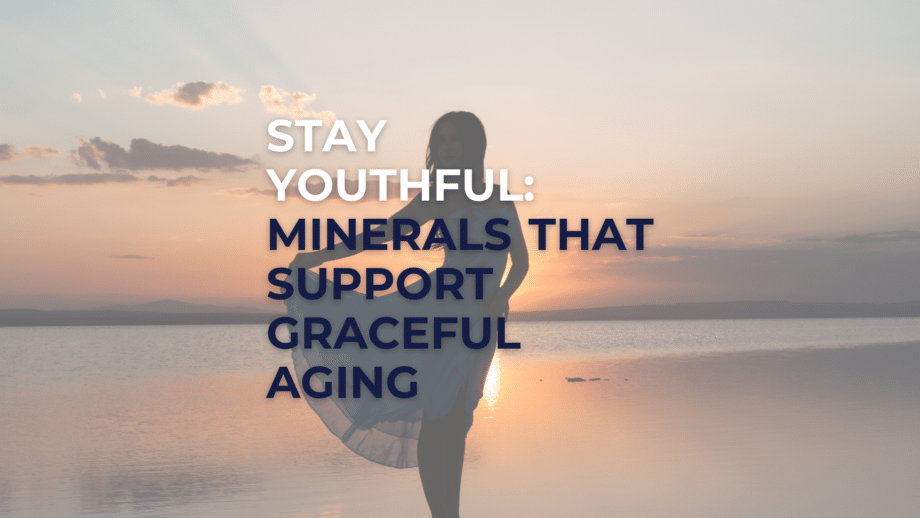Aging gracefully isn’t just a matter of luck or good genes—it’s largely influenced by how we treat our bodies, especially what we consume. As we get older, our nutritional needs change, and the minerals we ingest play an increasingly crucial role in maintaining our health and vitality.
The Best Minerals for Aging Gracefully
Calcium
Why It’s Important: Calcium is one of the most utilized minerals in the body. Correct amounts of calcium can help with mood balance, healthy metabolism, supporting a healthy body fat ratio, good sleep, and overall healthy aging.
How to Include It: Dairy products like milk, cheese, and yogurt are rich in calcium. Alternatives include fortified plant-based milks, leafy greens, and calcium-set tofu.
Magnesium
Why It’s Important: Magnesium is a powerful, natural mineral. It aids in relaxing nerves, relieving tension, and normalizing blood pressure. Magnesium is required for many biologic functions, including over 300 enzymatic reactions.
How to Include It: Include plenty of nuts (especially almonds and cashews), seeds (like pumpkin and flaxseed), whole grains, and leafy green vegetables in your diet.
Potassium
Why It’s Important: Potassium is an electrolyte that can provide natural discomfort relief for sore muscles, help support healthy heart function & blood pressure, and a natural diuretic to support gut health. Low potassium levels can result in extreme tiredness, breakdown of muscle mass, and other unwanted side effects.
How to Include It: Fruits such as bananas, oranges, and apricots; vegetables like potatoes, spinach, and cucumbers; and legumes such as lentils and kidney beans are excellent sources of potassium.
Zinc
Why It’s Important: Zinc is an extremely important mineral supporting everything from immune health and sexual desire to clear skin and healthy brain function. Zinc is critical for the formation and activity of many enzymes and cells that play a role in the maintenance of a healthy immune system.
How to Include It: Meat, shellfish, dairy products, bread, and cereal products are great sources of zinc. For a vegetarian or vegan diet, zinc can be found in legumes, seeds, nuts, and whole grains.
Selenium
Why It’s Important: Selenium has many roles in the body. It helps protect cells, transfer electrons, and encourage a healthy metabolism. It works closely with vitamin E to help reduce free radical damage and encourage a normal inflammatory response.
How to Include It: Brazil nuts are a powerhouse of selenium, with just a few nuts needed to meet daily requirements. Fish, meat, eggs, and brown rice also provide good amounts.
Bioavailable forms for supplementation
Calcium Chloride
- Bioavailability: Calcium chloride is highly soluble in water, which facilitates its rapid absorption in the digestive tract. This high solubility makes it an effective form for quick calcium replenishment.
Magnesium Chloride
- Bioavailability: Magnesium chloride is not only absorbed efficiently when taken orally but also through the skin, making it versatile for different administration methods.
Potassium Citrate
- Bioavailability: Potassium citrate is well absorbed in the gastrointestinal tract, which enhances its effectiveness in managing potassium levels efficiently.
Zinc Lactate
- Bioavailability: Zinc lactate has a high solubility, which may enhance its absorption compared to other forms of zinc that are less soluble.
Sodium Selenite
- Bioavailability: As an inorganic form of selenium, sodium selenite is very potent and can be rapidly absorbed into the body, quickly increasing selenium levels.
Conclusion
Incorporating these minerals into your diet and supplement plan can help with aging gracefully, maintaining your vitality and health. Remember, balance is key, and each mineral plays a unique role in supporting different functions of the body. Eating a diverse and balanced diet is the best strategy to ensure you’re getting the wide range of nutrients needed to support healthy aging.

